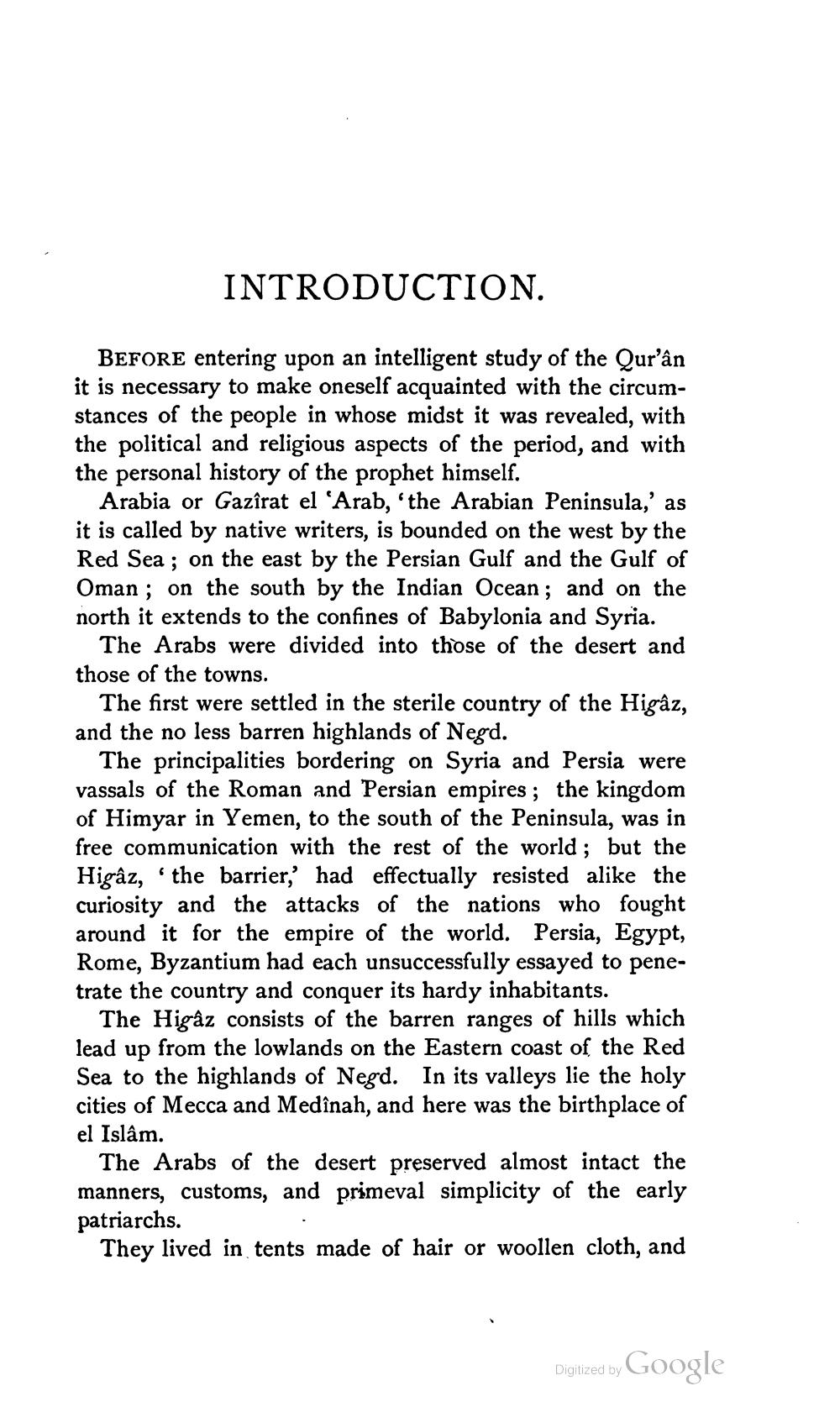________________
INTRODUCTION.
BEFORE entering upon an intelligent study of the Qur'ân it is necessary to make oneself acquainted with the circumstances of the people in whose midst it was revealed, with the political and religious aspects of the period, and with the personal history of the prophet himself.
Arabia or Gazîrat el 'Arab, 'the Arabian Peninsula,' as it is called by native writers, is bounded on the west by the Red Sea ; on the east by the Persian Gulf and the Gulf of Oman; on the south by the Indian Ocean; and on the north it extends to the confines of Babylonia and Syria.
The Arabs were divided into those of the desert and those of the towns.
The first were settled in the sterile country of the Higâz, and the no less barren highlands of Negd.
The principalities bordering on Syria and Persia were vassals of the Roman and Persian empires; the kingdom of Himyar in Yemen, to the south of the Peninsula, was in free communication with the rest of the world; but the Higâz, the barrier,' had effectually resisted alike the curiosity and the attacks of the nations who fought around it for the empire of the world. Persia, Egypt, Rome, Byzantium had each unsuccessfully essayed to penetrate the country and conquer its hardy inhabitants.
The Higâz consists of the barren ranges of hills which lead up from the lowlands on the Eastern coast of the Red Sea to the highlands of Negd. In its valleys lie the holy cities of Mecca and Medînah, and here was the birthplace of el Islâm.
The Arabs of the desert preserved almost intact the manners, customs, and primeval simplicity of the early patriarchs.
They lived in tents made of hair or woollen cloth, and
Digitized by Google




